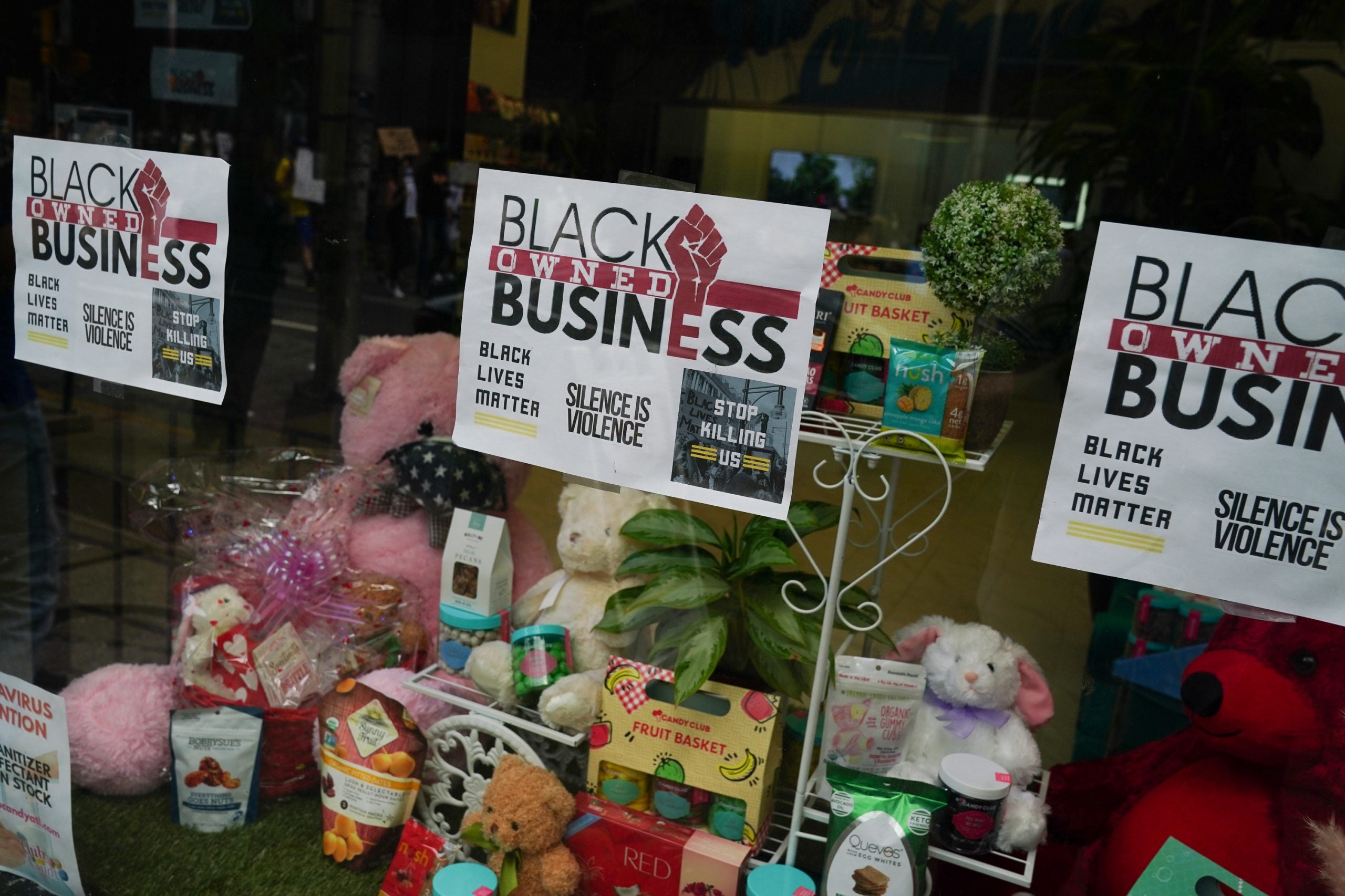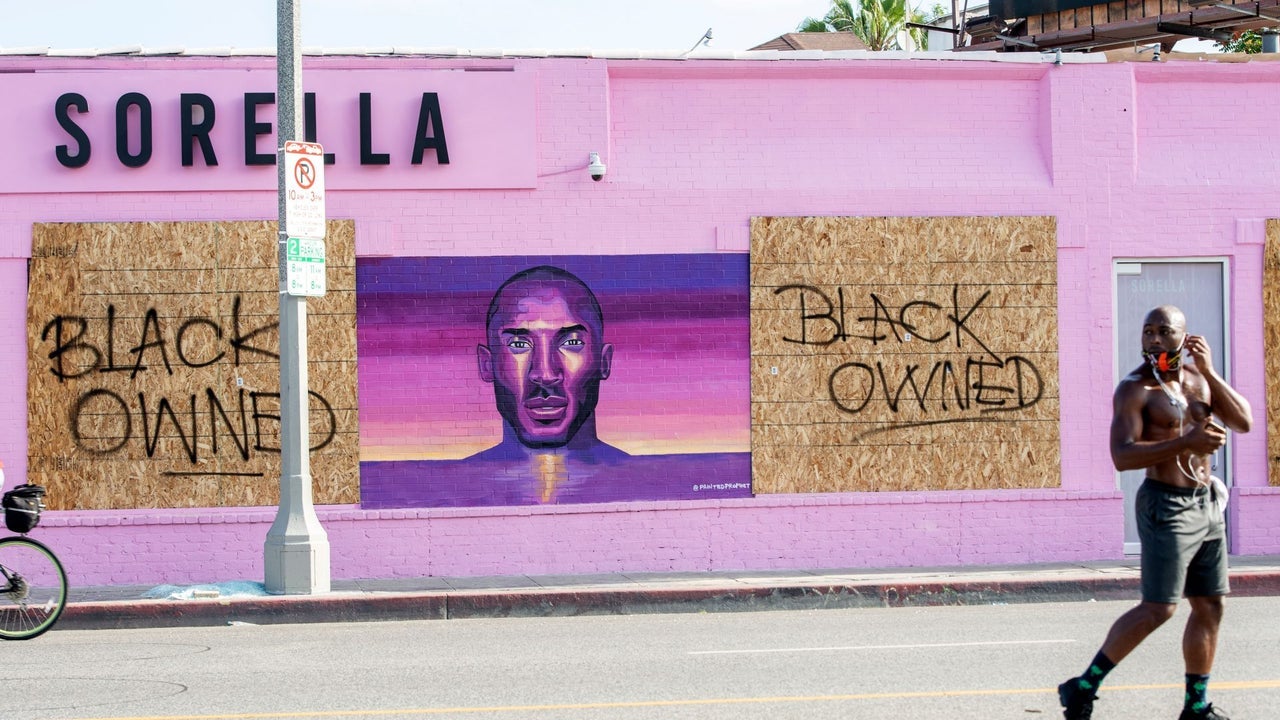Back in March, when the United States shut down for business, the only airborne contagion capitalists were afraid of was COVID-19. Now, months later, there’s something else in the air.
In late May, after news (and in some cases videos) of the tragic murders of George Floyd, Breonna Taylor, Toni McDade, and Ahmaud Arbery reached a fever pitch, an uprising commenced. Protests spread globally like wildfire. Soon after, capitalism—specifically large White-owned companies that were afraid of losing their Black base—came knocking on allyship’s door.
However, in the midst of fair-weather allyship and virtue signaling, came a rallying cry to support Black-owned businesses. Particularly after many fell victim first to the nationwide shutdown, and then to looting and vandalism in the wake of civil unrest.
Grassroots Support
“Our motto is taking care of people no matter what,” says Jahmal Cole, founder of My Block, My Hood, My City, a Chicago-based organization. “We adapt to the needs of the community. If there was a meteor that hit Chicago tomorrow, God forbid, we’d be out there sweeping up meteor dust. When there’s a snowstorm, you see us shoveling snow for seniors and residents. When there was heatwave last year, we delivered fans and water directly to seniors that needed it.”
When the coronavirus swept through the country, Cole and his team of volunteers remained on the streets delivering PPE, food, and other essentials often to the elderly. More recently, after a number of small businesses were impacted by looting and vandalism, Cole launched a Small Business Relief Fund. He raised $1 million in two days. That relief will also go toward businesses impacted by COVID-19.
Cole is just one of countless grassroots efforts around the country in an effort to support Black-owned businesses within smaller predominantly Black neighborhoods. In Oakland, Calif. the community united for the same cause, and more than $100,000 was raised. The initial goal was just $5,000. There are countless stories like these supporting brick and mortar businesses impacted by 2020’s series of devastating events.

A VIRTUAL MOVEMENT
The virtual movement to buy Black has also taken off. The Black Out Coalition, previously named #BLACKOUTDAY2020, has amassed more than 1.7 million followers on Facebook.
“In order to break free from the chains of financial servility, we will organize days, weeks, months, and years if necessary when not one Black person in America will spend a dollar outside of our community,” reads a portion of the group’s call to action. Its discussion board is filled with active users, imparting wisdom about small Black-owned enterprises in every corner of the U.S.
“This whole buy Black, bank Black movement has been going on for years now,” says Teri Williams, president of OneUnited Bank, the biggest Black-owned bank in the U.S. to ESSENCE in May. “But it’s becoming even more evident to us how we need to support each other.”
There’s something in the air indeed.
A Timely Reckoning
As African-Americans, we’ve always known the importance of our dollars. After all, one of the most impactful achievements of the Civil Rights Movement was the Civil Rights Act of 1964, which led to greater economic expansion for Black Americans. But thanks to white supremacy and its well-oiled machine of systemic racism, Black wealth has come nearly to a halt in recent decades.
According to the Institute for Policy Studies, the median wealth of Black families is only 2 percent of the median wealth of white families, that’s $3,600 for Black families compared with $147,000 for White families.
These numbers are dire, to say the least. They’re an urgent reminder of the fragility of Black livelihood in the United States. Though statistics help us see the bigger picture, many of us need look no further than our own financial situations and that of our friends and family to understand how lightly we’ve had to tread water.
Buying Black is only the beginning of a necessary but arduous process toward equality. It’s not a blanketed save-all to counter 400 years of oppression. But being conscious about our money—how it’s made, and where it’s spent—is a start.
“I think everybody has to be involved in this process,” says Dr. Lakeysha Hallmon, founder of The Village Market Atlanta, in a recent interview for UnBossed podcast. While reflecting on the importance of Juneteenth, Hallmon ruminated “There are people who are lifetime supporters of whatever they support. Go put your support in who you are, behind a cause that will help our people.”
Also, this need isn’t just limited to us supporting our own. White and Brown allies: pull up. There’s a great deal of performative allyship happening. Put your money where your support is.
Today, on Juneteenth, we honor the last slaves that were set free in America on June 19, 1865.
But we also need to push forward to secure our, and our children’s futures and it starts with consciousness spending.
“I was sharing with a colleague that we are probably lifetime customers of Crest toothpaste. We keep them open for business and we don’t think twice about it,” says Hallmon to ESSENCE.
“Imagine if we had that same type of consciousness for Black businesses, that it wasn’t an isolated day or a theme or a trend, where we unconsciously spend our money is consciously on Black folks. That’s how we thrive.”
